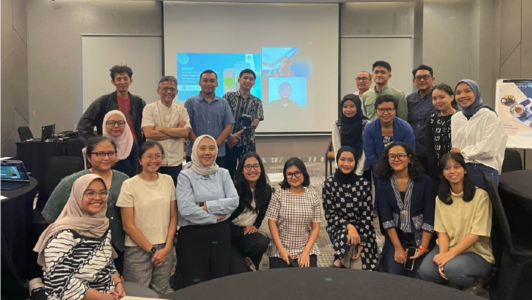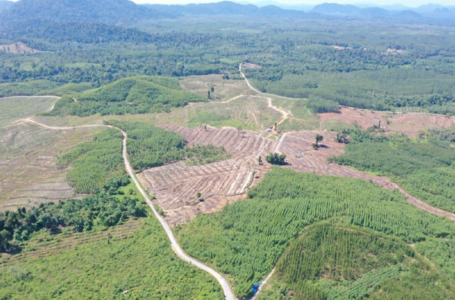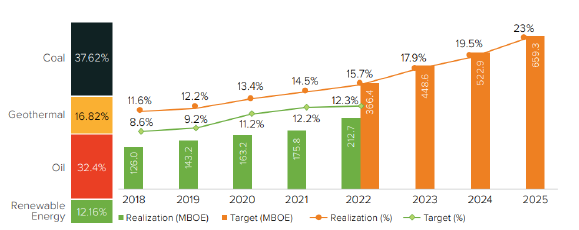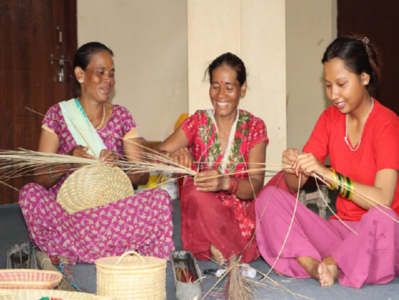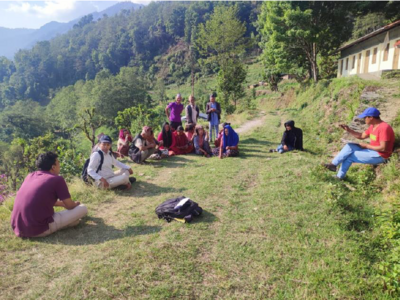The digital workshop “Driving the Green Shift” was held on December 19, 2024. The focus was on civil society perspectives and challenges on the energy transition in China and Indonesia - two countries that are closely linked in this area and both play a central role in global energy policy.
The event was held as part of the “Climate Crisis and Global China” project of the Asia House Foundation's China Program. The project is being implemented together with NGOs from Indonesia and China, which are investigating the social and environmental impact of China's global energy and investment policy. The project promotes transnational dialog between civil society actors in Asia. The workshop was aimed at civil society cooperation partners from Indonesia and China, as well as external experts.
Cooperation with the Chongqing Renewable Energy Society (CRES)
The workshop was held in cooperation with our project partner Chongqing Renewable Energy Society (CRES), a scientific and technical organization registered as an NGO and based in Chongqing, the Chinese city known as the “Renewable Energy Hub”. CRES specializes in the field of renewable energy and, in addition to research and political consulting projects, also pursues activities to raise public awareness of the energy transition. In addition, the organization implements a market-oriented approach in cooperation with small and medium-sized enterprises in Chongqing.
Common challenges and potential for cooperation
China and Indonesia face similar challenges in the area of energy transition despite their different starting points. As major coal producers and consumers, there is great pressure to promote climate-friendly alternatives and ensure social justice at the same time. The workshop identified specific potential for cooperation, for example in technology transfer, green investments or in the context of closer South-South cooperation.
Due to its geography, Indonesia is dependent on the expansion of smart grids, while China already has extensive experience with ultra-high voltage transmission lines in regions that are difficult to supply. Such complementary approaches offer starting points for cooperation between civil society actors in both countries in order to make the energy transition transparent and inclusive and minimize negative impacts.
Challenges of socially and environmentally responsible development
The workshop discussed critical civil society perspectives as well as technical and economic policy challenges. Topics discussed included:
- Unclear political guidelines in Indonesia regarding the coal phase-out;
- financing barriers for green projects in China;
- as well as questions regarding transparent and socially just project design.
In particular, participants pointed out the danger that top-down approaches dominate in many regions and that local communities are barely involved in planning and decision-making processes. This led to a key conclusion for the panel: energy projects must be designed in an inclusive, participatory and socially responsible way. This can only be achieved if representatives of local communities and civil society are involved in a constructive exchange with political and economic decision-makers in both countries.
Role of transnational cooperation between civil society organizations
Civil society organizations can make a decisive contribution to the transformation of energy systems by imparting knowledge, integrating local perspectives and networking social actors, including across national borders. Civil society organizations bring together actors from politics, business and society and can thus help to promote transparent processes and strengthen social justice in the context of global climate and energy policy.
International cooperation and joint civil society initiatives - such as this knowledge exchange - can help to develop sustainable solutions and ensure social cohesion in transformation processes. Especially where civil society's scope for action is limited and economic and political interests prevail.
A German version of the report can be found here. The recording of the workshop can be viewed below.



